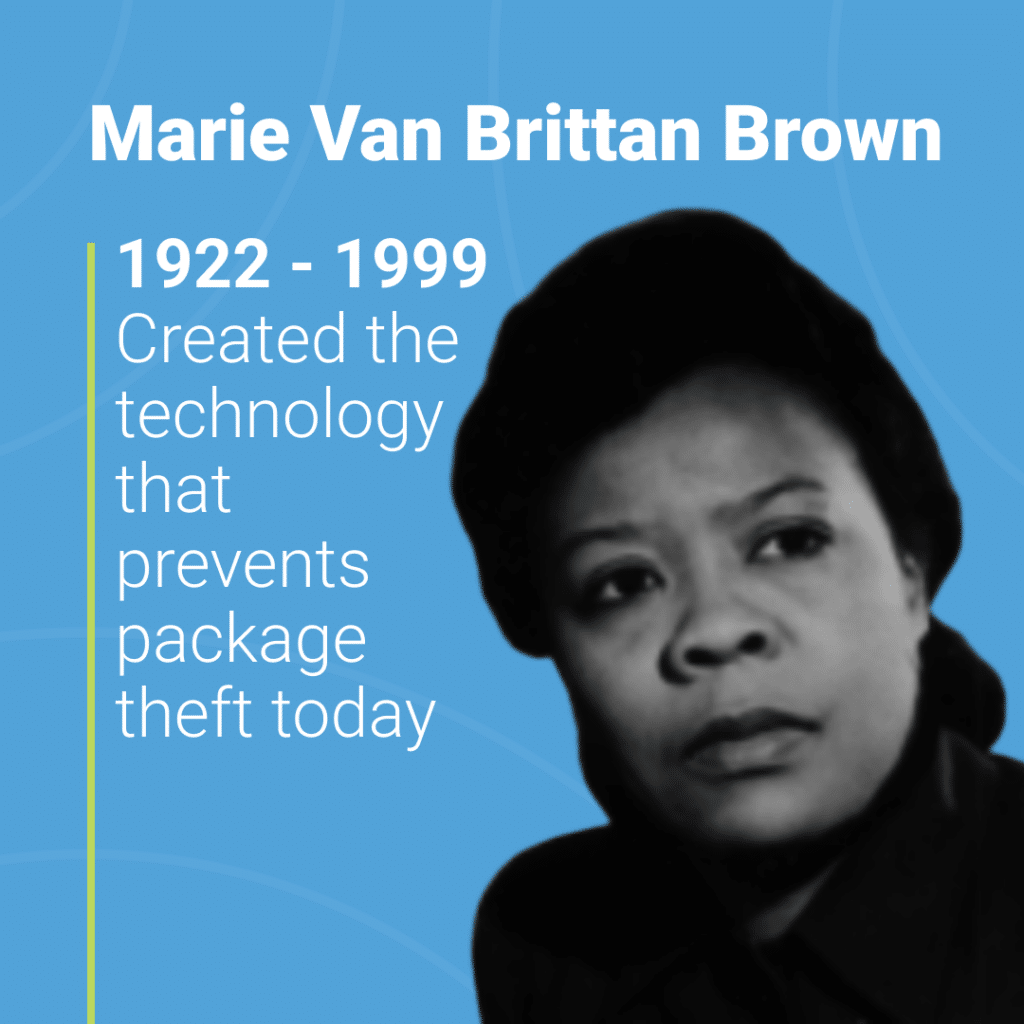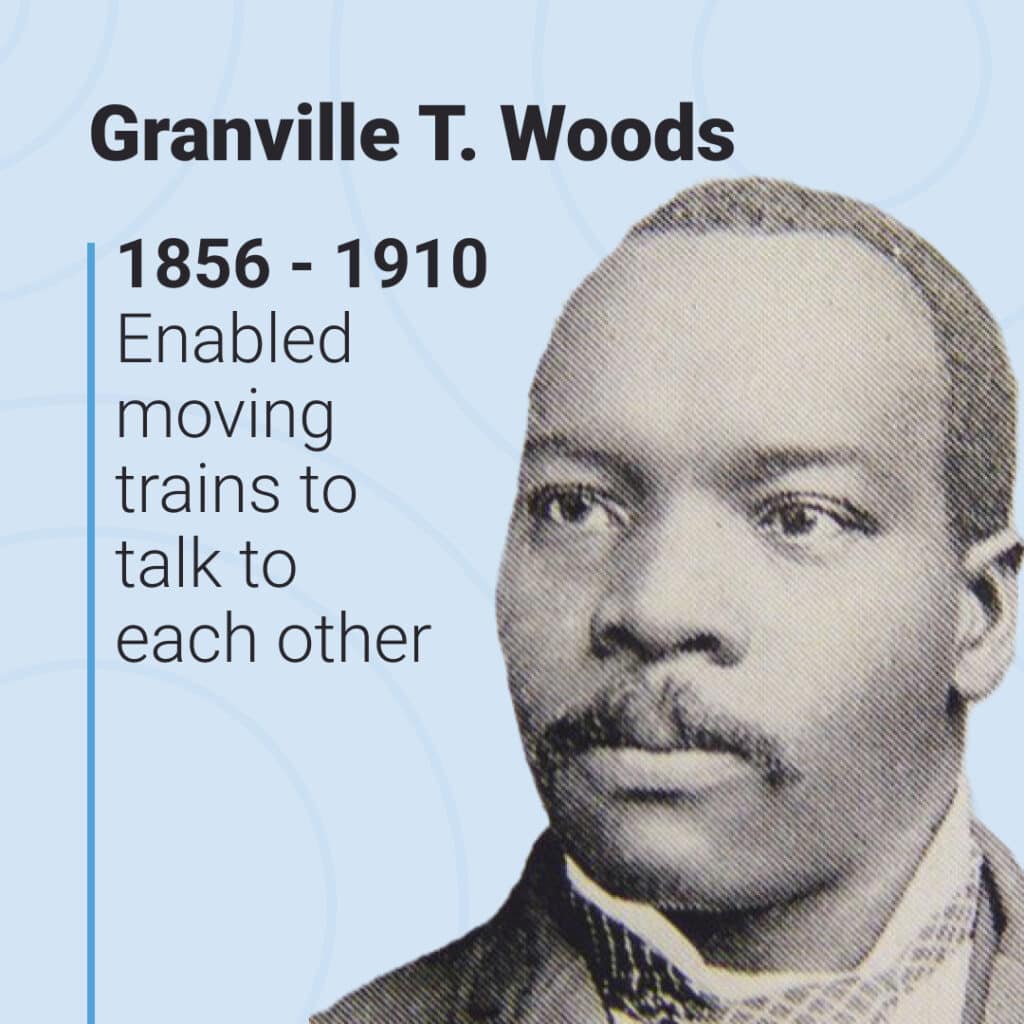Four disruptive Black innovators who helped shape today’s supply chains
From the Industrial Revolution to modern day, disruptive innovation has long been the key to helping industries to leap forward, and some of the most disruptive innovations have come from the Black Americans who were forced to work from the sidelines.
Recognizing their contributions to today's supply chains is essential for understanding the history and progress of the industry. Visionaries like those below have revolutionized the supply chain and transportation industry both technologically and culturally, and yet centuries of racism and exclusion have left African Americans underrepresented in the supply chain and tech industries.
To move forward, it is important to recognize their achievements and that of other disruptive innovators like them in order to advance diversity, equity, and inclusion within these fields — something that we feel passionately about here at Shipwell. So join us in the journey toward equality and justice this Black History Month by celebrating their contributions to the world we live in today.
Marie Van Brittan Brown
Invented the world's first remote video 'smart doorbell' in 1966

Born in Queens, New York on October 22, 1922, Marie Van Brittan Brown, a nurse from Queens, New York, felt uneasy in her neighborhood. With both herself and her electrical technician husband Albert Brown working odd hours, Marie found herself home alone a lot at night. Concerned with being vulnerable in a high-crime area and not trusting that the police would respond to any call quickly, she decided to increase her level of personal security on her own.
To take matters into her own hands, she invented a security system with the help of her husband in 1966. This system consisted of four peepholes, a sliding camera, television monitors and remote-controlled locks. The voice component allowed Brown to speak to the person outside. If she perceived the person as a threat, the police would be contacted immediately with the push of a button. If the person was recognized or expected, the door could be unlocked with a remote control. This invention formed the basis for the two-way communication and surveillance features of modern security systems, including the smart video doorbells that are used today to prevent the rise in package theft which has increased alongside online shopping.
Garrett Morgan
Improved road safety with the first three-position traffic signal

The child of two formerly enslaved people, Garrett Morgan was born in Kentucky in 1877 who made significant contributions to road safety with his invention of the three-position traffic light. Inspired by a near-fatal accident he witnessed at an intersection in Cleveland, Ohio, he realized that the traffic lights in use at the time were partly to blame for the type of incident he had witnessed.
Featuring only red and green lights for ‘Stop’ and ‘Go’, drivers and pedestrians alike would often find themselves traveling through an intersection while opposing traffic had a green light. He had seen firsthand how dangerous this could be and set out to create a solution.
After several years of tinkering, he eventually patented the three-position traffic signal that we’re familiar with today in 1923. This improved safety by allowing drivers to better anticipate when it was safe to proceed through an intersection. The invention quickly gained traction and was adopted by cities across the United States. It has since been credited with saving countless lives and is still used today as a standard for road safety. Garrett Morgan's legacy lives on as a reminder of the importance of innovation and its potential to improve our lives.
Granville T. Woods
Made it possible to locate and communicate with moving trains

Granville T. Woods, also known as the "Black Edison," was an African American inventor who had at least 50 government patents on his many inventions, and made key contributions to the development of the telephone and other electrical devices. A STEM pioneer at a time when financial support and backers typically did not support people of color, one of his most notable inventions was a system that enabled communication between moving trains — something that had been impossible up until that time.
A primarily self-taught engineer, he invented the process of “telegraphony” to allow trains to communicate more quickly (a process that was later purchased by Alexander Graham Bell's company) and later on, the multiplex telegraph which built on and improved this process even further. This system allowed trains to communicate with the station and with other trains so they knew exactly where they were on the tracks, helping them avoid collisions and dangers. It also helped dispatchers locate trains more quickly and accurately. Woods' invention revolutionized transportation safety and efficiency, making it possible for trains to travel further distances in shorter amounts of time. His work is still celebrated today for its impact on modern communication technology.
Shirley Jackson
Responsible for many advancements in communication and inspired a generation

Jackson, the first African American woman to earn a doctorate at MIT, is responsible for monumental telecommunications research that led to the invention of products such as the touch-tone phone, portable fax, fiber optic cables, and caller ID. These inventions have revolutionized communication in today's supply chains, allowing for faster and more efficient data transfer between businesses, but her work in the industry goes even further than the technology she created.
Appointed as the co-chair of Barack Obama’s President’s Intelligence Advisory, she also advocated for collaboration between big tech, academia, and government to drive innovation in the supply chain industry. Additionally, her research into global shifts in supply chains and their effects on natural disasters, terrorism, and war have been instrumental in shaping the modern supply chain landscape. Dr. Jackson remains one of the most celebrated African American leaders and innovators in the industry and serves as an inspiration to women in the field of supply chain management, and her legacy continues to be celebrated by organizations such as the National Women's Hall of Fame and the National Inventors Hall of Fame.
What’s next?
Without the contributions of innovators like those highlighted above, the supply chain and the world would be a very different place today. The reefer monitoring that was added to the Shipwell platform in 2020 would not exist without the mobile refrigeration units created by Frederick Jones 90 years earlier, and neither would we have the tracking and visibility capabilities that Dr. Gladys West made possible through her contributions to the development of GPS, or the capability to transport shipments by rail over long distances that was enabled by Elijah (‘The Real’) McCoy’s self-lubricating invention.
Supporting black innovators and promoting diversity and inclusion in the workplace is an absolute necessity for fostering greater creativity and allowing space for world-changing ideas like these. By maintaining a culturally diverse work environment, businesses can benefit from different perspectives, ensuring that their organization is always making room for new ideas to come in and help them stay competitive. And by supporting and uplifting each other, we create an environment where everyone feels valued and can bring their authentic selves forward with confidence, which in turn encourages greater collaboration through diverse perspectives and results in more collective creativity. Through acknowledging each person’s unique contributions — regardless of identity or background — we aim to create an equitable space where EVERYONE can succeed.
For more information on Shipwell’s commitment to diversity or to apply to work with us, click here.
Want to learn more?
Seamlessly schedule your shipping and receiving appointments directly on our online carrier & dock worker portal. Our strategic automation is designed to optimize dock availability, tailored tonavigate your facility's constraints and understand the unique nature of each of your shipments.







